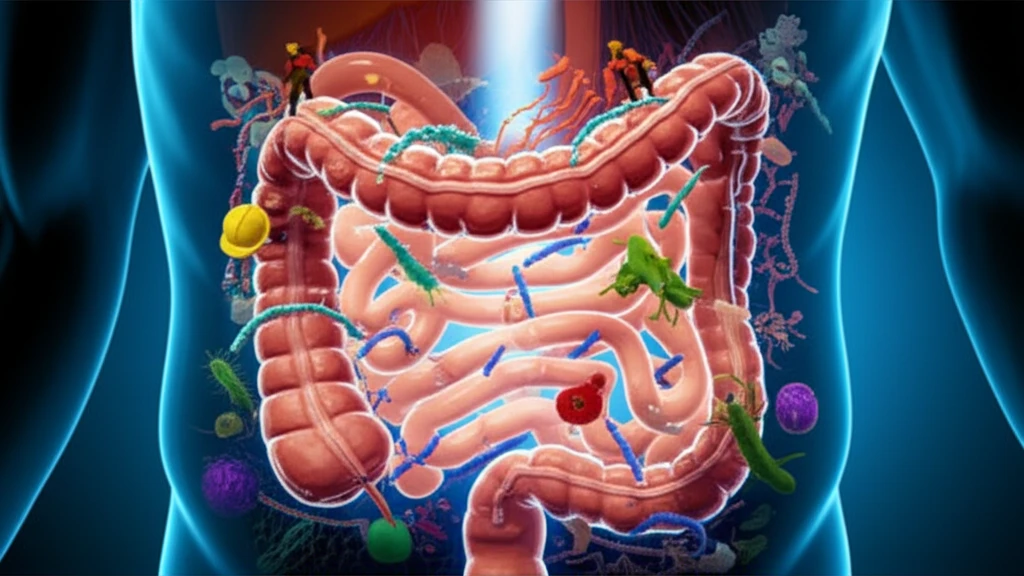
Gut Check: How Your Gut Bacteria Could Be the Key to Kidney Stone Prevention
"Unlocking the secrets of your gut microbiome might be the future of kidney stone prevention and overall metabolic health. Learn how trans-domain gut inhabitants play a critical role in oxalate stone disease."
The human gut is more than just a digestive system; it's a bustling metropolis of microbes that significantly impact overall health. This complex ecosystem, known as the gut microbiome, plays a vital role in metabolizing nutrients, regulating the immune system, and even influencing the development of certain diseases. For a long time, scientists primarily focused on bacteria when studying gut health. However, recent research is unveiling the importance of other residents, including archaea and eukaryotes, in maintaining a balanced and healthy gut.
Kidney stones, particularly those made of calcium oxalate, are a recurring and painful problem for millions. While dietary factors and genetics play a role, emerging evidence suggests that the gut microbiome may also be a key player in their formation. Dysbiosis, an imbalance in the gut microbiome, has been linked to various metabolic disorders. The connection between gut health and kidney stone formation is becoming increasingly clear.
A groundbreaking study published in Scientific Reports sheds new light on the intricate relationship between the entire gut microbiome – including bacteria, archaea, and eukaryotes – and the development of oxalate kidney stones. This research emphasizes the importance of considering the entire microbial community, or 'trans-domain' gut inhabitants, when exploring metabolic diseases.
What Does Your Gut Have to Do With Kidney Stones?

Oxalate is a naturally occurring substance found in many foods. While the body can produce it, dietary intake significantly impacts oxalate levels. The gut plays a crucial role in processing and eliminating oxalate. Certain gut bacteria, like Oxalobacter formigenes, can break down oxalate, preventing it from being absorbed into the bloodstream and eventually forming kidney stones. However, when the gut microbiome is out of balance, this natural process can be disrupted.
- Trans-domain imbalances: The study revealed that dysbiosis in kidney stone sufferers wasn't limited to bacteria alone. Significant imbalances were also observed in the archaeal and eukaryotic communities.
- Reduced diversity: Individuals with kidney stones had less shared diversity in their gut microbiome, suggesting a less resilient and potentially less healthy gut environment.
- Key bacterial players: While some beneficial bacteria like Oxalobacter formigenes and Lactobacillus plantarum were retained in some individuals with kidney stones, the overall abundance of oxalate-metabolizing bacteria was decreased in others.
- Functional gene differences: The study also found differences in the abundance of genes involved in oxalate metabolism, further highlighting the functional impact of gut dysbiosis.
What Does This Mean for Preventing Kidney Stones?
This research underscores the importance of a holistic approach to gut health and kidney stone prevention. While more research is needed, the study suggests that strategies aimed at restoring balance to the entire gut microbiome, not just targeting specific bacteria, may be more effective in preventing recurrent kidney stones. This could involve dietary interventions, prebiotics, probiotics, or even fecal microbiota transplantation in severe cases. Consulting with a healthcare professional to assess your individual risk factors and develop a personalized plan is always the best course of action.
